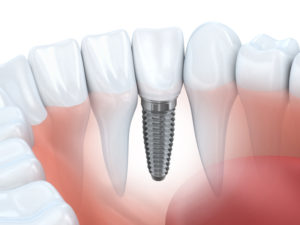 Dental implants in Massapequa have one of the highest success rates in the field of dentistry. Nonetheless, they can fail the patient in a small number of cases. When this happens, the cause is usually due to either health conditions or lifestyle factors. If you suspect that your implant is failing, then you should seek professional dental care as soon as possible.
Dental implants in Massapequa have one of the highest success rates in the field of dentistry. Nonetheless, they can fail the patient in a small number of cases. When this happens, the cause is usually due to either health conditions or lifestyle factors. If you suspect that your implant is failing, then you should seek professional dental care as soon as possible.
Why Dental Implants Sometimes Fail
Research shows that dental implants succeed more than 95% of the time. Modern implant techniques are more advanced than ever before. So why do they sometimes fail? Usually the cause can be traced back to one of these factors:
- Autoimmune illnesses. These include conditions such as celiac disease, lupus, or rheumatoid arthritis. In such cases, the body may either reject the implant or dissolve the bones that hold the implant in place.
- Blood circulation problems. For example, a clot can inhibit blood flow to the site of the implant, slowing down or even preventing the healing process. When this happens, the complications can include a failed implant.
- Medical side effects. Certain medications can make implant failure more likely. One example is a class of medicines called bisphosphonates, which are sometimes used to treat osteoporosis. You can avoid this problem by telling your dentist about all medications you take, whether prescription or over-the-counter.
- Lifestyle factors. Enjoying a successful post-surgical experience with implants requires that the patient take care of his or her health. Unhealthy habits like smoking, excessive drinking, illicit drug use, and eating a poor diet can all make implant failure more likely.
What Are the Symptoms of Implant Failure?
Contact your dentist right away if you notice any of the following problems after receiving your implant:
- Severe pain around the surgical site.
- A feeling that the implant is shifting or coming loose.
- An unexplained fever.
- Discomfort when eating or drinking.
- A numbing sensation anywhere in your mouth, teeth, or face.
Prompt treatment can often prevent implant failure or help to ensure successful re-implanting.
How Can I Prevent Implant Failure?
Receiving dental implants is like getting a new lease on life. Not only can the procedure restore your smile, it can also enable you to enjoy all the fun, healthy activities that you miss. But maintaining these benefits requires living a healthy lifestyle going forward. This should include:
- Eating a well-rounded, nutritious diet. You should eat plenty of lean protein source, calcium, fiber, vitamins and minerals. All of these nutrients are essential for maintaining strong nerves and bone, which are the foundation of both a successful implant and your natural teeth.
- Getting regular exercise. Staying physically active is essential for your overall well-being. A fit body is better able to fight off infections and other health conditions that can threaten the success of dental implants.
- Getting plenty of rest. This includes getting adequate amount of sleep, but also includes minimizing the effects of stress on your life.
- Staying away from tobacco products. Whether it’s cigarettes, cigars, snuff, smoking pipes, or chewing tobacco, the chemicals inside these items can harm your health in many ways, making implant failure much more likely.
Your dentist in Massapequa can give you more information about enjoying long-term success with your implants. The time and effort you spend taking care of yourself will help to ensure that your dental implants last for a long, long time to come.
About the Author
Dr. Khalida Stutman has been practicing dentistry for over 25 years. She earned her dental degree from Case Western Reserve University School of Graduate Dentistry and keeps his skills sharp through ongoing education and training. You can reach her office online or by calling (516) 804-5081.
